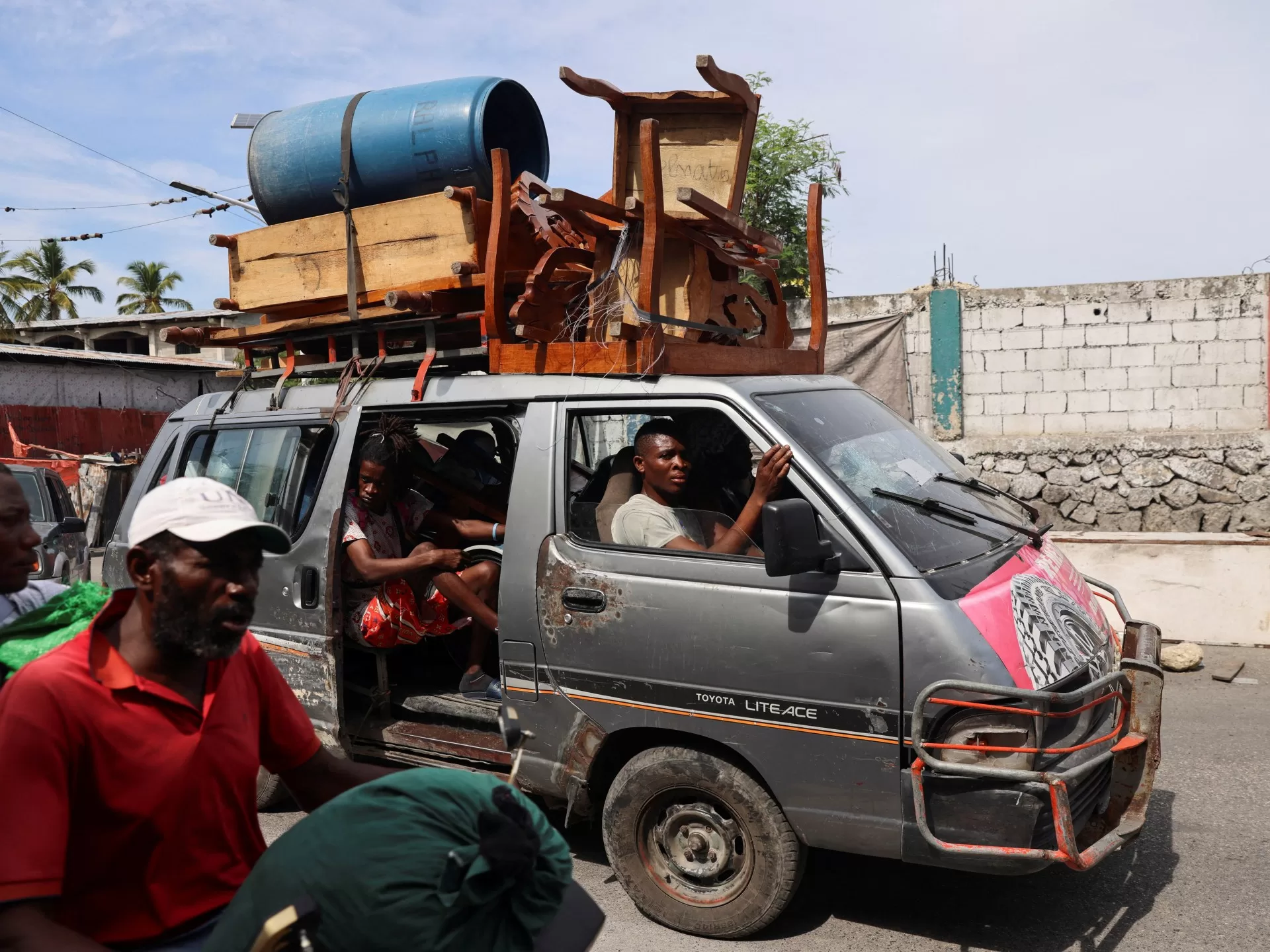The United States embassy in Haiti is preparing to evacuate some of its non-essential diplomatic staff as a powerful gang coalition tightens its grip on Haiti’s capital, according to US media reports.
Gunman targeted two of the US embassy’s vehicles this week, though no personnel were injured, the US Department of State confirmed on Friday.
One of the targeted vehicles had its windshield shattered and another, which was not struck, belonged to the chief of mission, The Miami Herald reported. Photographs obtained by Al Jazeera from a security source appeared to confirm the extensive damage to the vehicles.
Other foreign officials have also come under fire in Haiti. On Thursday, a marked UN helicopter with 18 people on board was hit by gunfire while flying over the capital, Port-au-Prince, the UN’s human rights office in Haiti told Al Jazeera.
The helicopter was hit but no one was injured and it was able to land safely.
Due to the deteriorating security situation around the embassy, some 20 non-essential diplomatic staff are expected to leave the country in the coming days, according to reports by CNN and The Miami Herald.
In a statement to Al Jazeera, a State Department spokesperson declined to share details of its staff adjustments in Haiti, adding that the embassy would remain open. The spokesperson reiterated the US’s “strong condemnation against ongoing gang violence aimed at destabilising Haiti’s government”.
Earlier this year, Haiti’s international airport was shut down for nearly three months after gangs swarmed the perimeter and fired at planes on the tarmac.
In March, the US military had to airlift non-essential embassy personnel from the Caribbean country after a state of emergency was declared.
It also brought in additional personnel to boost security at the embassy.
Surge in violence
The blitz of attacks on foreign officials comes amid a steadily worsening security situation in the Americas’ poorest country, where a powerful gang coalition commands control of much of the capital and its outskirts.
The coalition, called Viv Ansanm (Live Together), this week ramped up attacks on numerous towns outside the capital, setting homes aflame, seizing farmland and blocking off roads.
In one attack earlier this month, more than 100 people were slaughtered in a gang attack on the town of Pont-Sonde, the UN said.
The latest assaults have displaced another 10,000 Haitians in the last week, the UN estimated, adding to more than 700,000 already pushed out of their homes. Thousands more have been killed during the conflict.
“The situation in Haiti is very critical, especially in the capital,” said the UN’s humanitarian coordinator for the country Ulrika Richardson. “Many neighbourhoods are completely under the control of gangs, which use brutal violence.”
Haiti’s gangs, accused of recruiting child soldiers into their ranks, have long clashed with national police and civilian self-defence groups. But their latest attacks on foreign vehicles – and surge into areas beyond the capital – have heightened security concerns.
The conflict is fueling famine-level hunger in swaths of the nation, as people forced to flee their homes can no longer depend on steady income for food.
While the UN authorised an international police force to help Haiti’s police take back control from the gangs, the 400-strong Kenya-led mission lacks resources and has produced scant results.
Haiti’s leadership has requested the UN to convert the force into a formal peacekeeping mission to shore up resources, an initiative that was blocked last month by China and Russia.
The UN’s independent human rights expert for Haiti, William O’Neill, said there are “simply not enough” security forces to keep in check the gangs, allowing them to have a stranglehold over Port-au-Prince, and isolating the city from the rest of the country, except by air.
“The whole southern peninsula of three million people held hostage by a gang of maybe 1,000, half of them teenagers. Crazy,” O’Neill told Al Jazeera.
